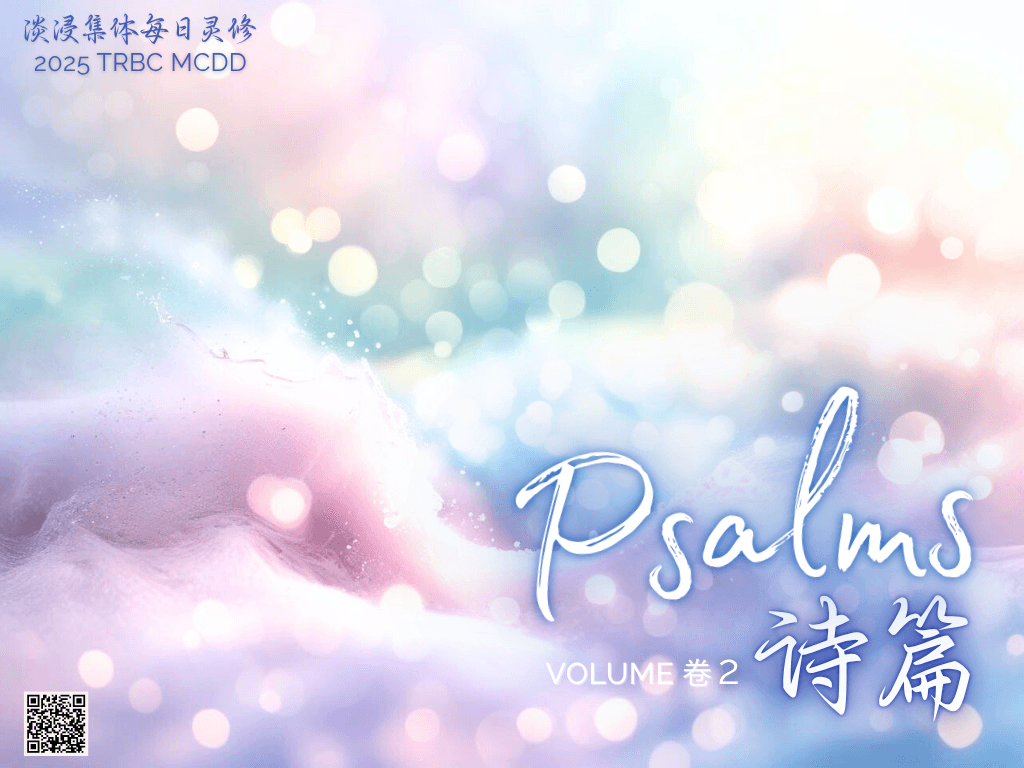Last 5 Days

Hoping in God in the Depths of Despair

Click here to read Ch42
Psalm 42 is a lament, revealing the psalmist’s inner dialogue—an honest confrontation with his soul. Even in deep sorrow, the psalmist chooses to turn his gaze toward God, to hope in Him.
Dear brothers and sisters, let us imagine together the picture of a person who used to worship joyfully with brothers and sisters in a vibrant church. This picture must be full of colour and filled with gladness. But now, because of persecution, this person is alone hiding in Mount Kinabalu in Sabah, Malaysia, recalling past memories and praying to God—only to be met with silence. The image now turns gloomy and dim, filled with grief and loss.
As I imagine this image, the hardest thing for me to accept is not the solitude or hardship, but God’s silence. This is exactly the context in which the psalmist finds himself.
The psalmist’s longing for God is intense—like a deer thirsting for streams of water, so his soul thirsts for God. Only God can refresh the depths of his heart. On one hand, he firmly believes that God is the living God, present with him; yet on the other, he feels as if God’s face is hidden. When people mock him, saying, “Where is your God?”—it’s like rubbing salt into an open wound.
Here, the theme of “God’s absence” comes into focus. This shows us that on our journey of faith, experiencing the silence or hiddenness of God is part of our spiritual growth. The question is not “Why is God so distant?”—because, often, that question has no clear answer. He is God, and He has sovereign authority. The key question is: How do we respond when God seems absent? When there is no answer, how do we hold on to our faith in Him?
“Why are you cast down, O my soul, and why are you in turmoil within me?” This is not a passive sadness—the image of being “cast down” suggests a sinking heart, while “turmoil” evokes restless noise, like an animal’s cry—loud or soft, but persistent. The psalmist vividly describes his emotional state: his heart is sinking, his soul is crying out. It’s like a person slowly drowning in the open sea. Yet he does not allow himself to be swallowed by despair. Instead, he tells himself: “Hope in God; for I shall again praise him, my salvation and my God.” And he continues to pray.
Although the psalmist’s heart is depressed, he never stops expressing his emotions to God, never stops praying to Him. This persistence reflects his deep faith. In the end, he calls God the “salvation of my face” (translated “my help” or “my countenance” in some versions), meaning: God is the One who saves me, helps me, and is my refuge. Through persistent prayer, the distance between the psalmist and God closes. Even though God has not yet responded, the psalmist firmly believes: God is his Savior and his God. Dear brothers and sisters, in the seasons of life, we have all experienced warm springs, blazing summers, refreshing autumns, and cold winters. In our own spiritual “winters,” we, too, may cry out: “My God, where are You? Why do You not answer me?” And these honest cries and questions are good, because we indeed need to wrestle through these issue. And very often, it is in this kind of questioning, this kind of soul-searching, this kind of prayer, that our eyes will slowly turn back to God. We will gradually surrender ourselves to Him again—and wait learn to wait upon Him.
Prayer:
Dear Heavenly Father, we give You thanks, for You are our refuge and strength. Many times, we do not understand why we must go through the “cold winter nights,” but we ask You to strengthen our faith. Help us lift our eyes to You, to hope in You, to praise Your name—because You are our God! In Jesus Christ’s name we pray, Amen.
